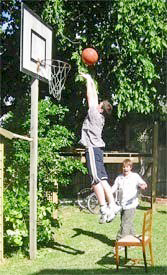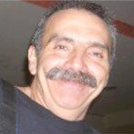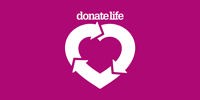IT WAS January 2006, the weekend before David Bland, 14, was to start
year 8 at Melbourne Grammar, and he was doing what he loved best —
playing basketball.
A few hours later he was on life support in intensive care, having
suffered a cerebral oedema, and his parents were faced with the reality
that their child was going to die. At the same time, they were being
asked to donate his organs.
David's father Jim, brother James, 21, and sister Emma, 19, say they
were sure it was the right thing to do. His mother, Margaret, said she
needed more time, but as David had been declared brain dead, a decision
had to be made.
"While it has done nothing to change this terrible, unfair tragedy, it
would be far worse if we hadn't agreed," Mrs Bland admits.
"Knowing David, it's what he would have wanted. It's about turning a
non-positive into something else," Mr Bland says, referring to the five
children who made full recoveries after their transplants when David
became one of four child organ donors in Victoria that year.
Tomorrow the Bland family is holding a Ride For Life day for the second year running to raise organ donor awareness.
David, who loved cycling almost as much as basketball, first tackled the
Hawthorn Velodrome when he was six. The ride starts there and 110
balloons will be released in his honour.
The medical director of the LifeGift Victorian Organ Donation Service,
Professor Bill Silvester, says Australia has one of the lowest donation
rates in the developed world, with fewer than 10 donors per million
people, or 200 organ donations each year for the past decade.
While less than 1% of all hospital deaths occur in such a way that organ
donation is medically possible — patients have to be in intensive care
on a breathing machine with a condition primarily affected by brain
trauma, stroke or haemorrhage — only 50% of those families consent.
"It's crucial that family and friends discuss this very difficult topic
long before a possible situation arises," Professor Silvester said.
"Otherwise they find themselves confronted with a major decision in the
most traumatic situation imaginable, and refuse on the basis that they
believe they're serving the best interests of their loved ones."
LifeGift statistics show more than 2000 people a year are on transplant
waiting lists, with an average wait of four years for a kidney, two
years for a pancreas, one year for heart or lungs and eight months for a
liver. "What motivates us is that out of someone else's tragedy up to
nine people can have life-changing surgery," he says.
More than a million Australians are on the Australian Organ Donor Register, a figure LifeGift wants increase
Reproduced from The Age
Louise Bellamy
October 11, 2008





